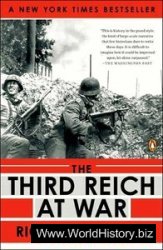The disaffection was strongest among:
Landowners who had been forced off their land industrialists who had had their factories taken over by the state peasants who felt aggrieved at having been forced into collectivization pro-Americans who had been forced to break their commercial and financial links with the USA
Those badly affected by the failure of Castro's economic diversity programme
Those who were offended by the ineffectiveness with which Castro's government operated
Those who considered that the political constraints and repression imposed by the regime were unjustified by any of the internal or external threats supposedly facing Cuba
Writers and artists whose works were subjected to government censorship editors and journalists who objected to the curtailment of their press freedoms
Academics who resented the government's encroachment on university freedoms
The trade unions, which had lost their independence professional bodies and associations, such as those representing businessmen, solicitors and teachers, who were angered at their being brought under state control
Lawyers who chafed at the government's asserting the right to appoint judges, a move that amounted to state control of the judiciary; their objections were voiced by Manuel Urrutia, a judge who had previously opposed the Batista regime and who, despite his re-appointment to the bench by Castro, chose to resign in protest at the new regime's suspension of elections those who were dismayed by the way Cuba's revolutionary government became centred in the person of Fidel Castro himself; such personalizing of authority undermined the notion of the 1959 revolution as a movement of the people
Those among Castro's former supporters who were disturbed by his insistence on fighting wars abroad on behalf of liberation movements in such far-off countries as Angola, Zaire (later renamed the Congo) and Ethiopia, as well as closer to home in Latin America; they found his pre-occupation with anti-imperialist campaigns merely drew attention to his failure at home to extend to his own people the rights that Cuban soldiers were fighting and dying for elsewhere
Those who had fled the island because they knew their days of privileged living were over or because they simply felt they could not live in the repressive society Castro was creating
Those in the cultural scene who resented the regime's restrictions on artistic freedom. Often expressed in protest songs, a main target of their complaint was the bureaucracy that had grown up under Castro, interposing itself between him and the people. A popular representative of this view was the folk singer Silvio Rodriguez who bitterly berated the bureaucrats, describing them as 'bosses who said one thing and did another _ establishment cowards who were ruining the revolution'.
Emigres
By 1968, 350,000 Cubans, nearly 5 per cent of the population, had left the island. Most went to the United States where many of them formed cells planning to return to reclaim Cuba by force should the opportunity arise. It was the existence of such emigres abroad and their contacts with disaffected groups remaining in Cuba that gave Castro his justification for imposing surveillance and controls on the people.
Although the opposition groups looked to be a large and formidable array, they were never as serious a threat as appearance suggested. It was only the US-backed emigres who represented real resistance, and when they did openly challenge Castro, as at the Bay of Pigs, they were decisively beaten.




 World History
World History









